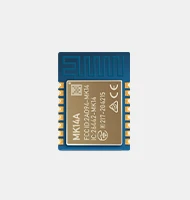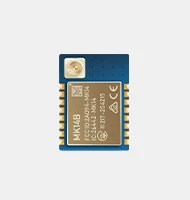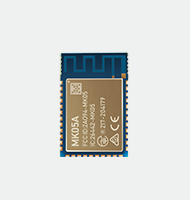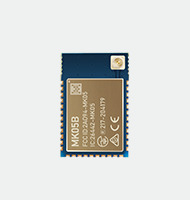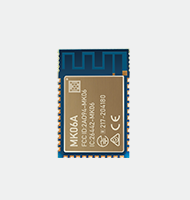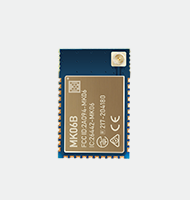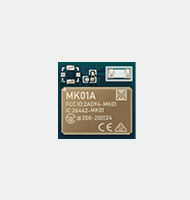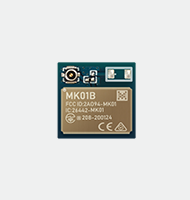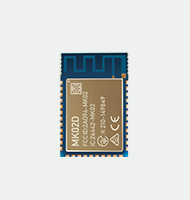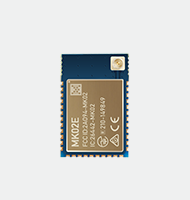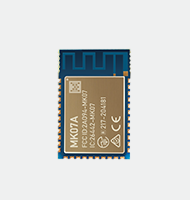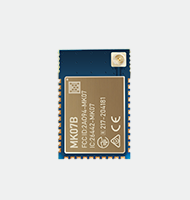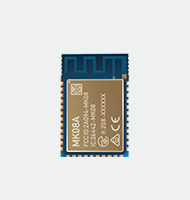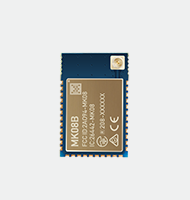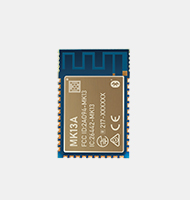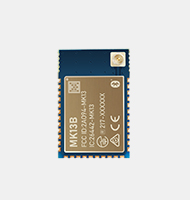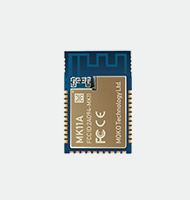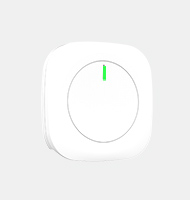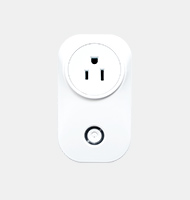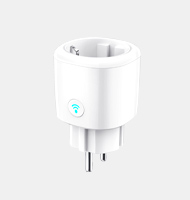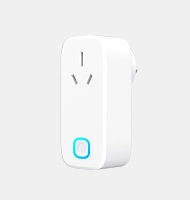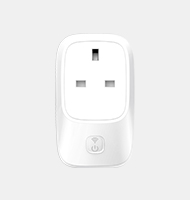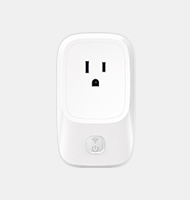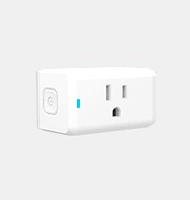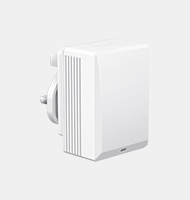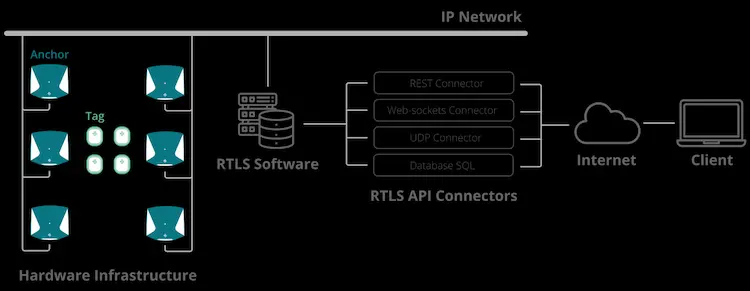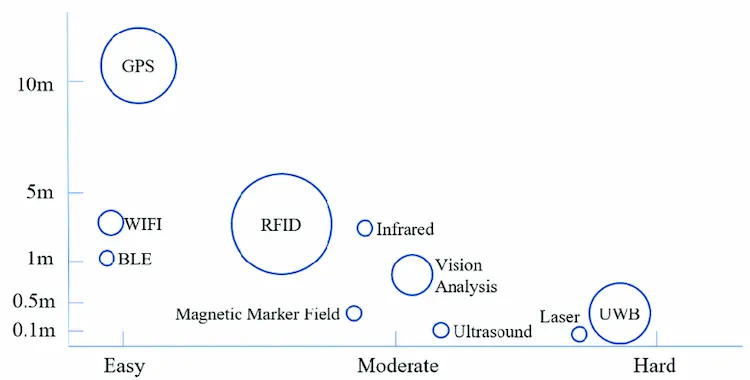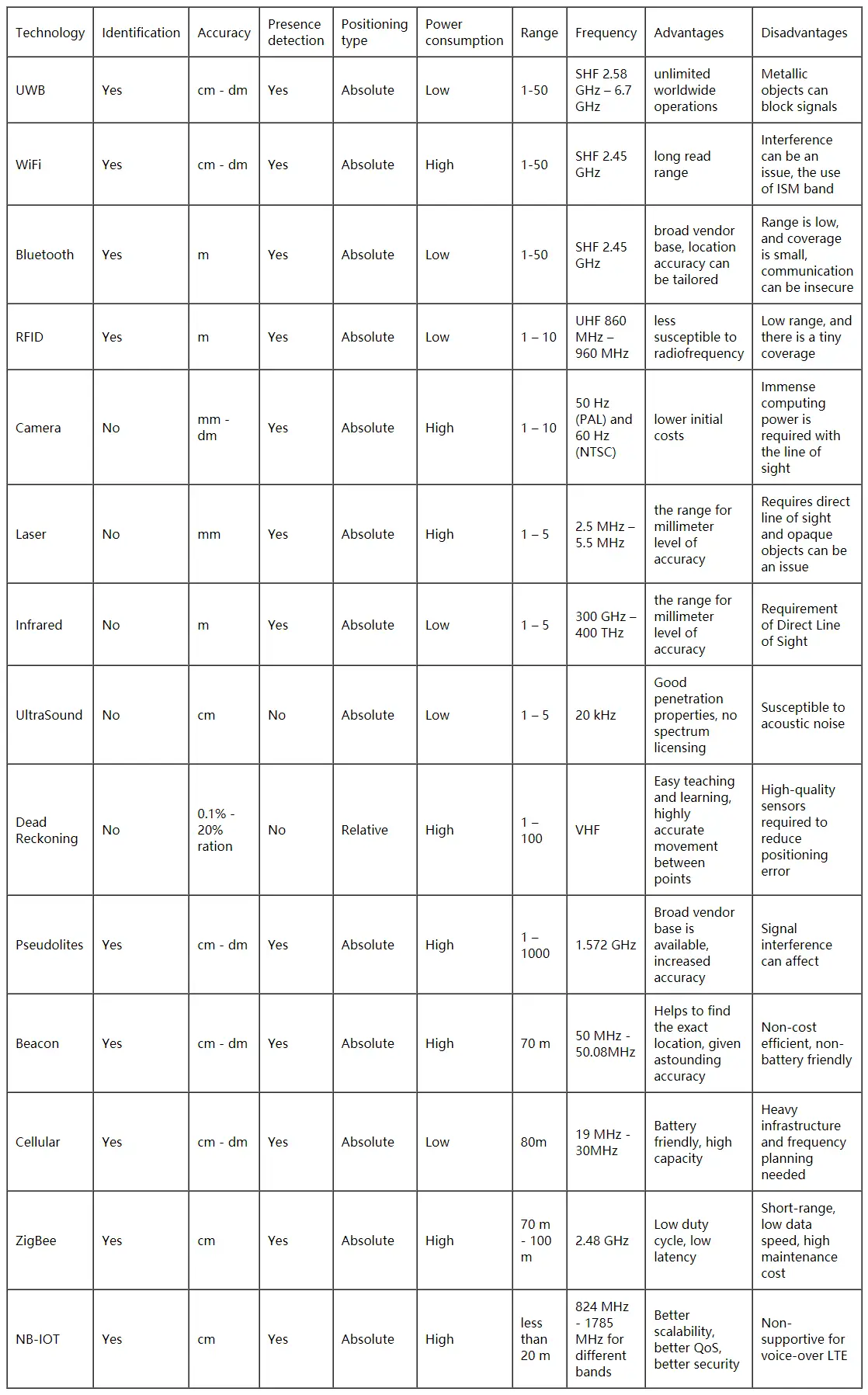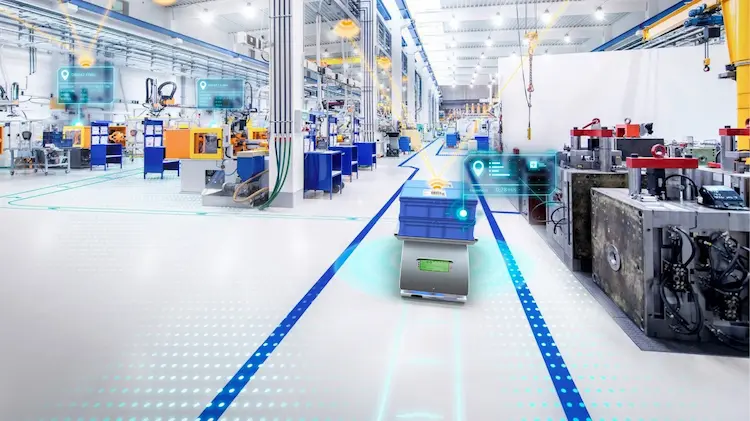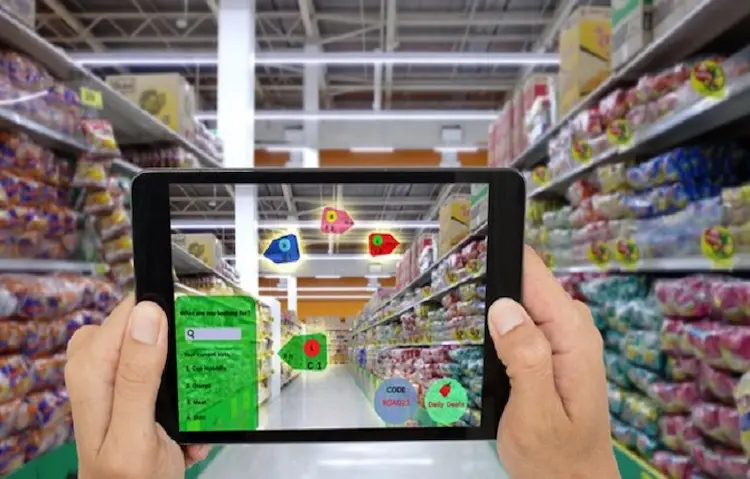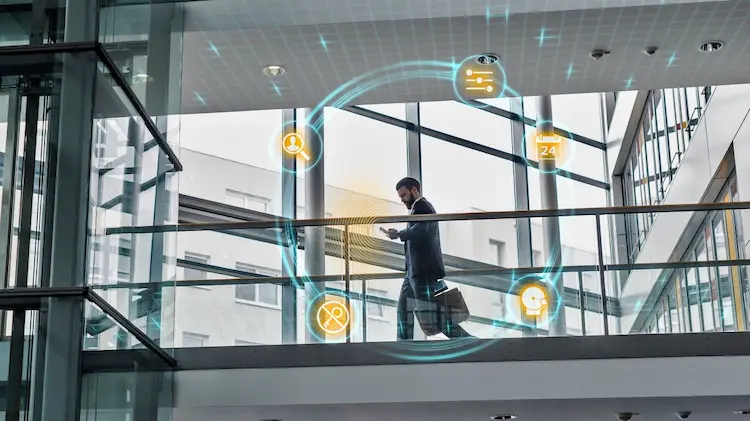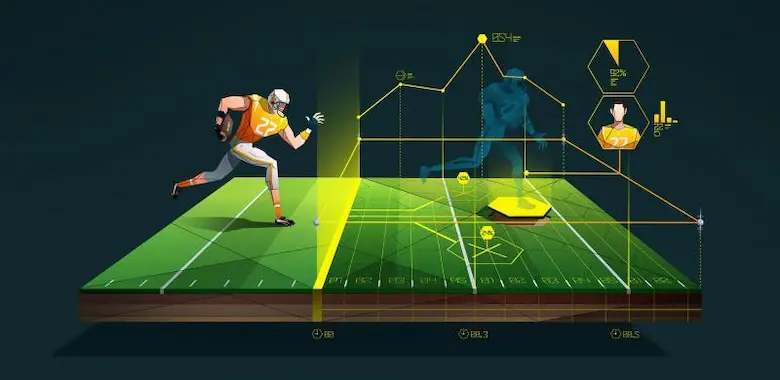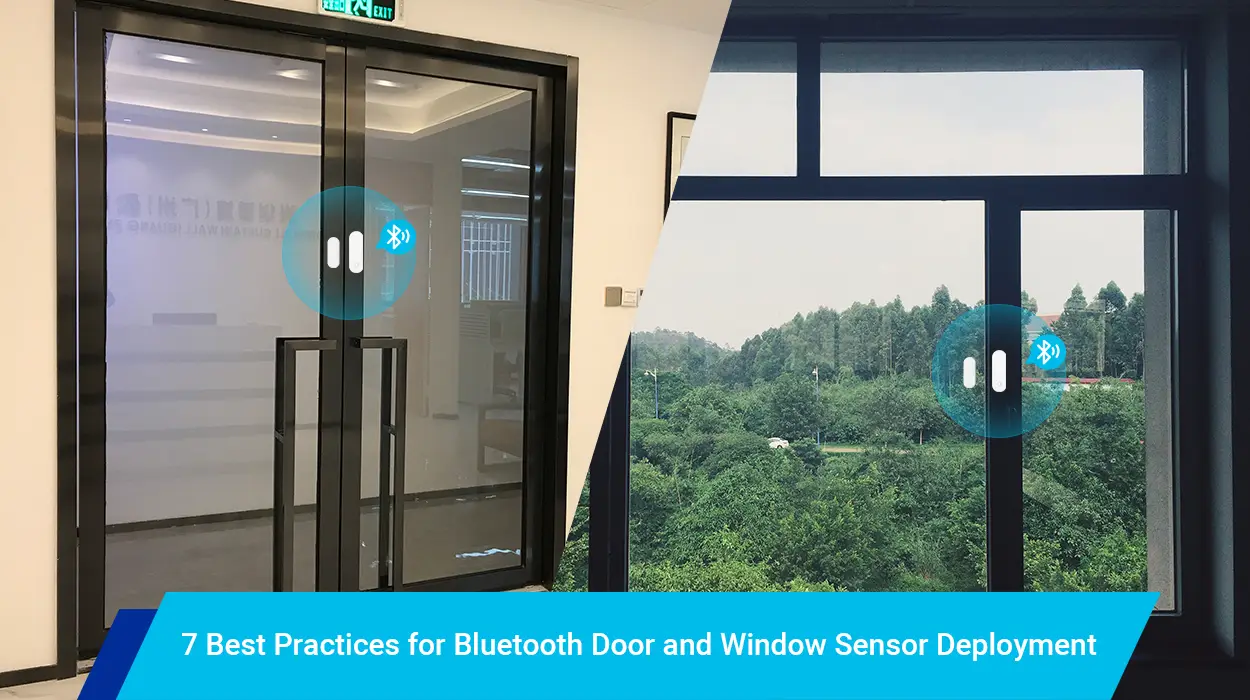Hybrid Real-Time Location Systems (RTLS) offers the best paybacks of several ultramodern technologies for your tracking solutions, this way solves the disadvantages of sole technology while combining the advantages and features of other RTLS technology together.
All types of RTLS Technology
The section sums up all the technologies specifically used in RTLS technology, where its associated applications are well analyzed and discussed accordingly with their properties.
- WiFi: WiFi technology utilizes tags to send a WiFi signal to multiple access points within a defined radius. Using Differential-Time-of-Arrival strategies and received signal strength (RSSI), the recipients can find the labels.
- Bluetooth: Bluetooth technology in RTLS uses low energy label-like tags, which are small gadgets that work by transferring a signal caught by other Bluetooth-powered devices and pointing out the distance between a label and a reader. These systems also work within a designated radius which is approximately 3 meters.
- Infrared: Infrared technology in RTLS works the same way as a remote of your TV. An infrared tag is placed on an object that sparkles a unique infrared ID at a specific time. An infrared reader receives this infrared ID.
- Ultrasound: RTLS accuracy can be increased by using Bluetooth tags. Bluetooth tags average radius falls between 2-4 meters. Ultrasound technology can help in increasing its accuracy.
- RFID: RFID technology in RTLS allows the transmission of data wirelessly with the help of an electromagnetic field. There are special reading devices in RFID, and the technology operates in the calculation of them. In layman terms, it gives the reader a point-in-time location.
- Laser: Laser technology in RTLS is primarily used in the logistics area profile. Its accuracy, precision, and consistency are even in strict and severe situations, where optical and RFID technologies are not practical. When Multichannel Radio Wave technologies cannot promise mandatory accuracy, laser technology in RTLS comes to work.
- Ultra-Wideband (UBW): Ultra-Wideband is so far the best option for location tracking and workplace safety. The UBW frequency is low in energy. The facility is used to track fast-moving vehicles, newborn babies, and senior residents to help improve the security of their lives. It also provides greater accuracy for the prevention of collisions. Ultra-wideband lasts for a year and requires low-cost maintenance.
- Camera: Business set-ups that use real-time location systems are introduced with the monitoring technology equipment with the images and camera. High-resolution cameras are used to detect and track the asset locations and send their images data with timestamps to the cloud networking systems hosted by large database computers. Camera-based RTLS provides multiple photos with varying accuracy depending on the image’s quality, lighting, visibility, and distance covered by the camera and the person or an asset.
- ZigBee: ZigBee is a wireless communication standard and specifications for a wireless personal area networking (WPAN) or Wireless Sensor Network (WSN) for radio communication. In this industry, ZigBee is being used for the next generation for automated manufacturing.
- Beacon: A Beacon is a miniature transmitter that conveys messages on the Bluetooth device within a range of up to 40 meters at max. Beacons transmit a statement at a particular time that can be doled out at the receiving end. No actual gadget is implied; however, an audio signal is inaudible to the human ear. Data like a watermark is adjusted into the sign, for instance, about the location. The technology is therefore referred to as audio watermarking.
How does RTLS Technology work?
Real-Time Location System abbreviated as RTLS possesses the ability to locate and track any object, any person within a defined radius that is covered by radiofrequency.
RTLS can also be deployed to track the physical movement of any object or even a person. In this aspect, RTLS is very helpful in ensuring the safety of a particular object or a person.
The Real-Time Location System is this present age’s response to observing the status and movement of any object or a person on the ground. Regardless of whether you run a factory or need to find forklifts and hardware in a distribution center, all things considered, an RTLS system can help you to a great extent.
Organizations searching for a superior method to screen their representatives and hardware can have it with the usage of RTLS.
RTLS system is a mix of equipment and programming that cooperate to make a lattice network equipped for directing the development of RFID labels inside a particular location.
This remote organization is made by setting secures at key focuses all through and encompassing an office.
These anchors convey radio signals and get radio signals. They can perceive the dynamic RFID labels each time they come quite close to the anchor.
Comparison of RTLS technologies
How the Hybrid RTLS Technology works
Real-Time Location System, abbreviated as RTLS, can locate and track any object, any person within a defined radius covered by a radiofrequency. In this aspect, RTLS is very helpful in ensuring the safety of a particular object or a person.
The Real-Time Location System is this present age’s response to observing an object or person’s status and movement on the ground. Whether you run a factory or need forklifts and hardware in a distribution center, an RTLS system can greatly help you.
Organizations searching for a superior method to screen their representatives and hardware can achieve all this with the usage of RTLS. RTLS solution is a mix of equipment and programming that cooperate to make a lattice network equipped to develop RFID beacon inside a particular location. This remote organization is made by setting secure keys that focus all through an office. These anchors convey radio signals and perceive the dynamic RFID labels when they come closer to the anchor.
RTLS signals couples the UHF RFID Handheld Readers to transmit the location of the assets tagged to the Fixed Readers, then transferring that data to the company’s system. Workers can scan the tracking position to detect the assets tagged using the Handheld Readers, thus picking up the tags nearly se0ven meters away. The Handheld Readers release audio signals while increasing the beeping frequency as the worker heads nearer to the tagged assets.
What is better for the market? Partners or competitors
By 2025, it is estimated that the indoor seamless positioning market will become a USD 43.5 billion business. So, what if the obstacles of enactment between indoors and outdoors never exist? This can only happen if different performers in the RTLS value chain’s diverse locations mutually agree to collaborate in an ecosystem. We are jointly working with various solution providers, technology associates, and our entrants to craft a platform that benefits every person using it.
One of the main modules powering this hybrid world is the Quuppa intelligent locating system. It helps solution providers to improve the value of their own LBS solutions. Also, merging Quuppa smart locating system with other corresponding technologies of the Quuppa system enables solution providers to serve their customers efficiently.
Market fragmentation is one of the biggest problems faced when unbridling the full business potential of a hybrid RTLS solutions. In its place, enabling the hybrid RTLS effectively to develop the addressable market size is what is required is an ideal ecosystem model that builds a world of authentic, open, and related technologies. The readiness of the market is likely to increase to a whole new level when this happens.
Benefits of the Hybrid RTLS
Hybrid RTLS combines location technologies by blending technology such as passive tags and the active RFID technology, thus offering up-to-date information and comprehensive visibility.
This improves the efficiency of operations in a facility and keeps the prices low for greater investment returns. Some benefits of Hybrid RTLS solutions are:
- Real-Time and accurate tracking for a comprehensive records visibility
- It is affordable to install and maintain the passive tags applied on Hybrid RTLS solutions
- It makes it is easy to locate all the assets tagged
- Reading long ranges for pervasive coverage even in large spaces
Why the Hybrid RTLS is essential
Although applying one RTLS system may couldn’t complete your project or some system such as Wi-Fi-based RTLS system or Beacon technology might be expensive for bulk records, you still can apply other RTLS technology with our beacon devices.In this way,your project can be optimized with more accurate, cost-efficient asset tracking feature.
Processing industrials workers face high-risk potentials as the job’s hazards are much more severe. Although large-scale disasters still occur, they are rare. These large-scale intrinsic risks are brought by working in restricted spaces or not following safety precautions.
Hybrid RTLS offers precise location tracking in case of an emergency in the worker’s safety, thus ensuring a fast reaction.
Applications of the Hybrid RTLS Technology
While using Hybrid RTLS technology, it is simple to maintain the actual-time visibility of assets across various areas. For instance, most manufacturing plants rely on MOKOBlue whenever they need a more reliable and cost-effective system for efficient and faster management of records in their facility.
Hybrid RTLS solution enables workers to share their accounts information throughout the facility, thus eliminating laid-off work in all departments and improving overall productivity. The Hybrid RTLS technology is perfectly suitable in the manufacturing, construction, and shipping industries for use in various applications that include:
- Management of warehouses
- Tracking tools and equipment in a facility
- Management of yards
- Real-Time records tracking
- Management of docks
Use case examples of Hybrid RTLS and how to use them
Multiple-use cases exist that influence the application of Hybrid RTLS technology . This has helped to build innovative and developed processes of new applications that were earlier impossible. Some use cases examples of Hybrid RTLS include;
a) In healthcare – Hybrid RTLS is used in hospitals
• Responding quickly to patients
• Locating assets
• Monitoring the movement of patients
• Managing inventories

b) In industries – offers safer workplaces
• Preventing emergencies
• Responding quickly to emergencies
• Combating COVID-19 by contact tracing and quarantine monitoring
c) In supermarkets and retail stores – essential in supermarkets
• Analyzing real-time data
• Preventing theft
• Navigating employees and customers
• Monitoring products
• Optimizing equipment
d) In smart buildings – Hybrid RTLS enhances more secure and cost-effective operations
• Controlling access
• Responding more quickly to emergencies
• Removing inefficiencies
• Using resources in a more brilliant way
• Resolving matters faster
e) In sports – The Hybrid RTLS is important in sports facilities
• Accessing new information
• Performance analysis and enhancement
• Improving the engagement of fans
• Increasing safety in the sports field
